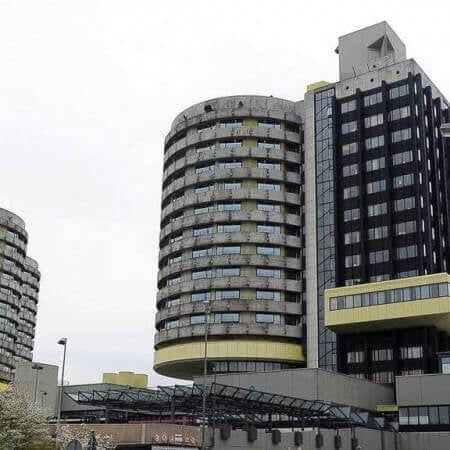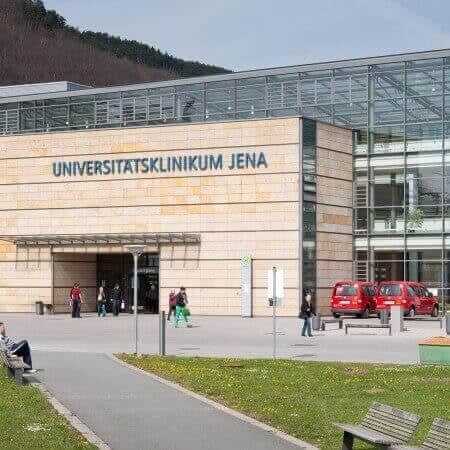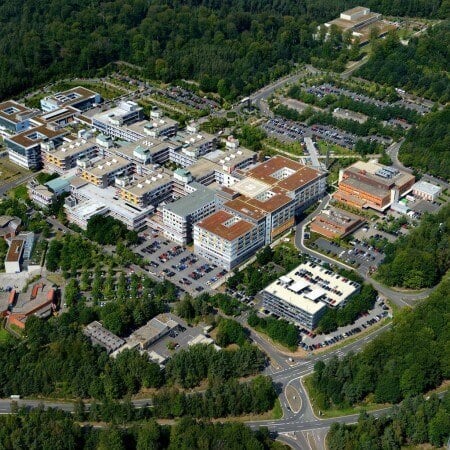Every third patient suffers from failed back surgery syndrome. It may occur soon after surgery or after a long period of time. The operated or adjacent spinal segment may cause pain. The treatment of failed back surgery syndrome in Germany involves the use of conservative methods, the implantation of a neurostimulator, the implantation of an epidural catheter, and anatomical operations followed by neurological rehabilitation.
Content
- Conservative treatment
- Minimally invasive treatment
- Surgical treatment
Pain can be controlled with medications and non-drug procedures. If their effect is insufficient, minimally invasive treatment is carried out with the implantation of an epidural port system for the administration of drugs or the implantation of a permanent neurostimulator. Doctors can also offer revision spinal surgery, which will repair the consequences of a previous unsuccessful operation.
You can seek medical attention from the Hospital Neuwerk Moenchengladbach, the Catholic Clinic Koblenz-Montabaur, or the Charite University Hospital Berlin.
Booking Health will take care of all the arrangements for your trip. We will book hotel and airline tickets for you, translate your medical records, meet you at the airport in Germany, and take you to the hospital by car. Treatment with an appointment through our service will cost you less due to the absence of taxes for foreign patients.
Conservative treatment
Whenever possible, doctors at German medical centers try to control the pain syndrome with conservative methods. Treatment options include the following:
- prescription of nonsteroidal anti-inflammatory drugs;
- massage;
- physiotherapy;
- therapeutic exercises;
- acupuncture.
Doctors can perform a drug block if the pain is severe and control is insufficient. They inject local anesthetics into the area where the spinal nerves pass, into the facet joints, or into the epidural space, depending on the source of the pain syndrome. These drugs block the conduction of impulses along the nerves, reducing pain for a while. Local anesthetics are often combined with glucocorticoids. Due to their anti-inflammatory and anti-edematous effects as well as impaired conduction of impulses along sensitive nerve fibers, glucocorticoids prolong the effect of the block.
Minimally invasive treatment
The block has a temporary effect. You can do it all the time, but it is inconvenient and uncomfortable for the patient.
Doctors place an epidural catheter (port system) for continuous drug delivery. This is a minor surgery that lasts about 40 minutes. The port is placed through a skin puncture, and the reservoir is placed subcutaneously. Now the reservoir can be filled with drugs through the skin without any injections into the spine. The drugs last for a long time, and they are constantly injected into the epidural space. It is possible to adjust the dosage and rate of administration while maintaining a sufficient analgesic effect.
Another treatment option is the implantation of a neurostimulator. This device stimulates the spinal cord and reduces pain by 50% or more. The electrode is placed into the spinal cord through a puncture, and the electrical impulse generator is placed in the subcutaneous adipose tissue.
Surgical treatment
Doctors may recommend revision surgery for patients with chronic pain that cannot be controlled with drugs. It is preceded by accurate diagnostics, as doctors must find out the cause of the pain syndrome and the mechanism of its formation to eliminate the pain.
Failed back surgery syndrome can occur both due to poor treatment and for reasons beyond the doctor's control. Poor-quality treatment may be associated with an incorrect determination of the source of pain before the first operation, a medical error during the intervention, or the use of outdated techniques. In addition, patients may have lesions in their adjacent intervertebral discs in the long term after surgery.
Surgeons at German hospitals can perform the following operations to eliminate pain:
- decompressive laminectomy involves the removal of the vertebral arches;
- facetectomy involves the removal of facet joints (partial or total);
- discectomy with intervertebral disc arthroplasty;
- spinal fusion: doctors stabilize the vertebrae by fixing them rigidly after removing the bone tissue;
- implantation of a system for dynamic stabilization of the spine.
In Germany, preference is given to dynamic stabilization, which maintains the mobility of the spine. In the case of rigid fixation of two vertebrae, the load on the adjacent intervertebral discs increases. As a result, patients may develop diseases of the adjacent spinal segments.
If you suffer from back pain after spinal surgery again, you can undergo your diagnostics and treatment in Germany. On our website, you can find the cost of medical services and choose a medical care program at the best price. We will help you select clinics in Germany and take care of all the arrangements for your trip.
Authors:
The article was edited by medical experts, board-certified doctors Dr. Nadezhda Ivanisova and Dr. Sergey Pashchenko. For the treatment of the conditions referred to in the article, you must consult a doctor; the information in the article is not intended for self-medication!
Sources:
SPINE-health
Medscape

















